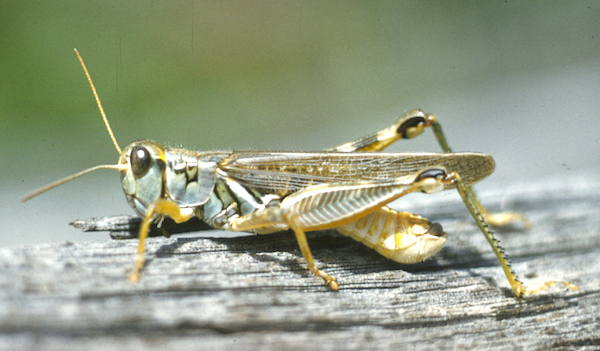Welcome! Learn about TrEnCh education

What is TrEnCh-Ed?
TrEnCh-Ed is the educational branch of The TrEnCh Project, which builds computational and visualization tools to Translate Environmental Change into organismal responses. We created this website as a tutorial on the science behind those tools for people who are interested in learning about how living things on our planet are responding to climate change.
TrEnCh and TrEnCh-Ed are productions of the Buckley Lab at the University of Washington, Seattle, and are funded by NSF DBI#1349865 (“CAREER: Computational and visualization tools for translating climate change into ecological impacts”).

How to use the site
The material on this website is written to be easily accessible to advanced high schoolers, beginning undergraduates, and beyond. If you are an educator, we invite you to integrate TrEnCh-Ed into your classroom or homework activities in any way that works for you. Alignments between our content and Next Generation Science Standards is available in the teacher’s guide. The resource page also included worksheets for high school and undergraduate students. The best way to approach the site is to move from left to right along the tabs on the home page:
- Start with our basic introduction to climate change.
- Understand how climate affects the physiology of living things.
- Find out why ecologists use elevational and latitudinal gradients and sources of historical data to help predict the biological impacts of climate change.
- Apply your new knowledge by exploring the data visualization apps we built to dive deep into four case studies about climate change and organismal responses.
- Use the glossary and resources as needed to understand technical terms.
Meet the Scientists and TrEnCh-Ed team
Learn more about the scientists who collected the data used in the visualizations!
Miriam Bertram is the Assistant Director for the Program on Climate Change at the University of Washington and often works with educators and scientists to collaborate around classroom content development. She is co-editor of an open access teaching resource “Climate Science for the Classroom” which you can preview here. Miriam periodically teaches cross-disciplinary undergraduate climate courses and will be facilitating two Current Climate Change Workshops for educators at UW Seattle in 2020. She works with TrEnCh-Ed on climate science content and organizing workshops to introduce high school teachers to TrEnCh-Ed.
Lauren Buckley is a Professor in the UW Department of Biology who leads the TrEnCh project. Her research aims to improve forecasts of ecological and evolutionary responses to climate change and focuses on montane butterflies and grasshoppers. She teaches courses in Climate Change Biology and Physiological Ecology and Evolution. Learn more about Lauren in her Scientist Profile
Meera Lee Sethi is a graduate student in the Hille Ris Lambers lab in the UW Department of Biology. She studies climate change and plant-insect interactions. She applied her background in science writing to write the Trench-Ed text. Learn more about Meera in her Scientist Profile
Abigail Meyer is a research analyst in the Department of Biology at the University of Washington working on the TrEnCh project. She works at the intersection of computer science and environmental research. She is passionate about climate change, ecology, and education. Abby works on the TrEnCh-Ed content and website.
Elli Theobald is an Assistant Teaching Professor in the department of Biology at the University of Washington. Her research focuses on teaching practices that promote equity and inclusion in college classrooms. She teaches the large introductory biology course focused on Evolution and Ecology as well as an upper division course in the biological impacts of climate change. Elli works to align TrEnCh-Ed with teaching standards and best practices and to develop content.
Nicholas (Nick) Verbanic is a chemistry and AP Environmental Science teacher at Lake Washington High School in Kirkland, WA. He is a recent graduate of the Master in Instructional Leadership program at the University of Washington where he researched the equitable implementation of Next Generation Science Standards (NGSS) in a high school chemistry professional learning community. He is working with TrEnCh-Ed to help teachers see how climate science is in the Next Generation Science Standards so they can help educate future generations of scientists. He led the development of teacher guides.
Mark Windschitl is a faculty member in the College of Education at the University of Washington. He studies the use of ambitious teaching practices in classrooms and how students learn about complex phenomena. He is assisting in envisioning the TrEnCh-Ed curriculum and designing workshops to introduce high school teachers to TrEnCh-Ed.
Macy Zwanzig is a life sciences teacher at Redmond High School. She has been working with TrEnCh-Ed to apply her knowledge of climate science and life sciences as they relate to NGSS and AP Environmental Science standards to develop some useful tools for teachers to take back to their classrooms.